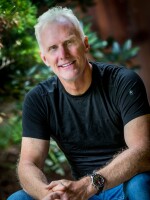MICHELE NORRIS, Host:
Officials here in Washington are trying to sort out a thorny dispute. It's over the rules that govern most of the big ships that travel in U.S. waters. Scientists say that ballast water carried by freighters and tankers is often contaminated with invasive organisms, a kind of living pollution. Non-native plants and animals are already causing havoc in waterways from New York City's harbor to the Great Lakes.
But as North Country Public Radio's Brian Mann reports, a plan by New York State that would force shippers to clean up their ballast tanks has sparked an international feud.
(SOUNDBITE OF MOTORBOAT)
BRIAN MANN: Jennifer Caddick steers her boat along the Saint Lawrence River, a waterway that cuts between New York state and Canada. This is one of the world's most important international shipping lanes, connecting the Atlantic Ocean to the Great Lakes. But Caddick, who heads an organization called Save the River, says for decades the big freighters plying these waters have carried another cargo that no one expected or wanted - invasive plants and animals.
JENNIFER CADDICK: The zebra mussel, round goby, spiny water fleas, quagga mussels - all of those things have come in through ship ballast tanks.
MANN: Those critters were sucked aboard while ships were sitting in ports all over the world, from the Caspian Sea to the Indian Ocean. They were dumped here when captains discharged the ballast water to keep their ships level as they took on and delivered cargos.
To stop that from happening, environmental groups and scientists convinced New York State to develop tough new regulations, slated to go into effect next year.
Jim Tierney, with New York's Conservation Department, says every ship passing through his state's territory will have to install miniature treatment plants right on board.
JIM TIERNEY: You have to put equipment on your ship that kills animals, bacteria, viruses, crustaceans that might be carried in ballast water.
MANN: Tierney and other scientists say current methods for cleaning ballast water tanks, adopted by the International Maritime Organization, aren't effective against many of the nastiest, invasive organisms still lurking out there.
But critics, like Ohio Congressman Steven LaTourette, say New York's regulations are so stringent they require shippers to use expensive technology that hasn't been thoroughly tested.
STEVEN LATOURETTE: Because New York is permitted to go ahead with standards that can't be met by any technology that exists today that you're going to shut down commerce on the Great Lakes.
MANN: New York officials say they're willing to work with shipping companies, giving them time to develop and install new systems. But other states and other countries say New York is interfering with their trade routes, serving as a kind of bottleneck and threatening to cut off shipping traffic to some of North America's biggest ports.
Earlier this month, the governors of Indiana, Ohio and Wisconsin wrote a letter to New York officials urging them to scrap the ballast water rules, arguing that they could cost thousands of jobs. Some federal officials agree.
Collister Johnson heads the Saint Lawrence Seaway, the system of locks and canals used by freighters heading for the Great Lakes.
COLLISTER JOHNSON: It's crazy. There is no other jurisdiction in the world that is proposing a set of ballast water regulations like the State of New York.
MANN: Last year, Canadian officials asked the U.S. State Department to intervene, arguing that New York's rules could shut off access to some of their country's most important ports. The U.S. Environmental Protection Agency and the Coast Guard are now developing new national ballast water guidelines.
New York State will face enormous political pressure to adopt the national ballast water standards when they're unveiled in November. But environmental groups and some scientists say they worry the federal guidelines will be far less strict and far less effective at stopping foreign invaders.
For NPR News, I'm Brian Mann. Transcript provided by NPR, Copyright NPR.

